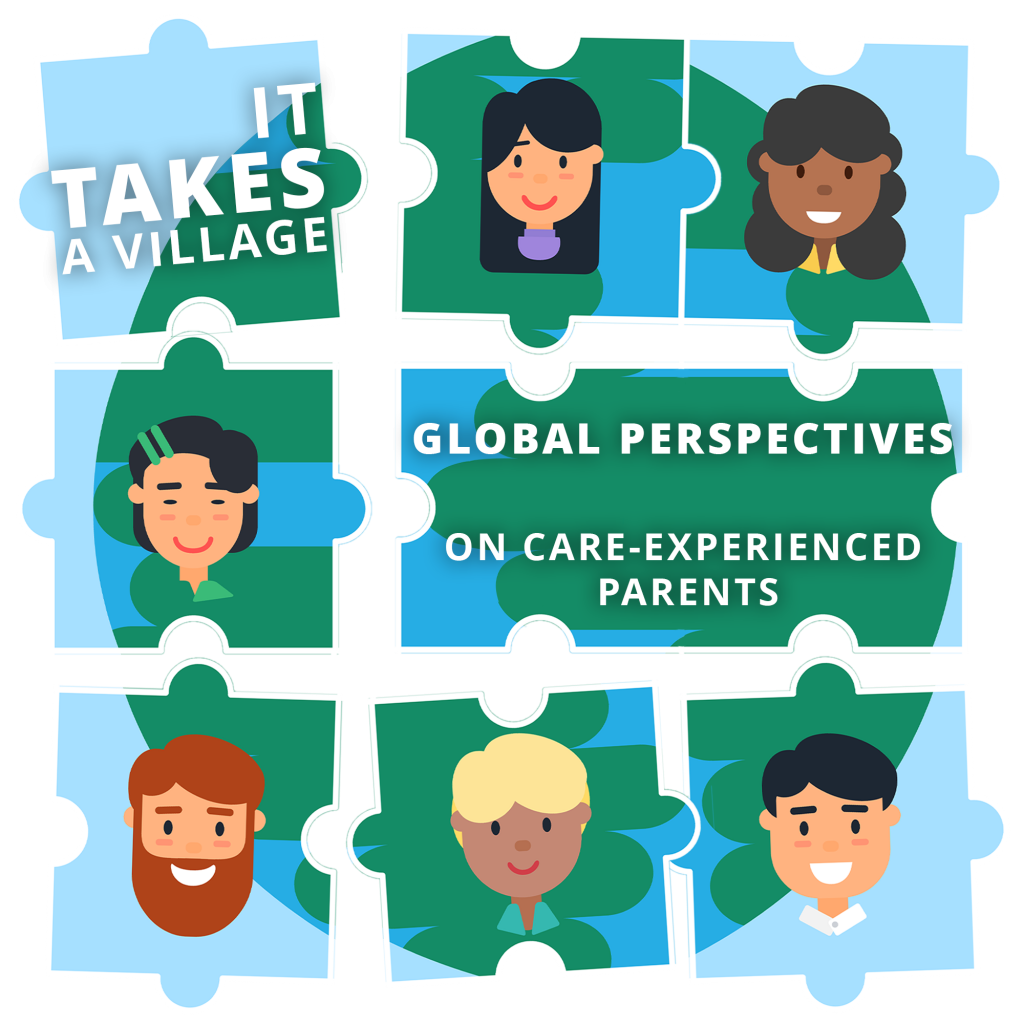I come from Italy but have Romanian origins. As a child, I spent five years in residential care. I had my daughter when I was 27
What does being a parent mean to you? OR How would you describe being a parent?
On the one hand, there is the positive side of trying to relive a childhood that was missed. Through my daughter I experience many joyful moments. On the other hand you have the responsibility of a human being, to offer a positive environment, because his growth depends on you.
So before you were visible, at a certain point you become invisible in everything and everywhere. It is as if you lock yourself in a box, in your house. At the beginning everything is beautiful, the pregnancy, you start a journey, everyone is close to you, everyone gives you advice. Then there is the moment when the baby is born and everything is beautiful again. Then, from the second month on, if you don’t have the right help it’s difficult. You also lose your friendships and the whole network you had around you, because your attention goes to the baby. So it is true that you find other parents who have children the age of yours and you still try to share things. But it happens that you also involuntarily close yourself off and focus only on the child.
Do you think your experiences growing up affect the way you parent?
I realise that on the one hand I am very strict, because I don’t want to make the same mistakes as my parents. This is also aimed at myself, in the sense that I don’t want to give her too much, otherwise she can understand that I show her my affection with a toy, with things, as my mother did with me for many years and still does with my daughter. But on the other hand I think I have a pretty good balance and I think having been in care, being listened to, welcomed, talking a lot, is fundamental. I have understood the importance of listening, understanding the “why” and looking for a solution together.
What support do you or did you get from professionals?
I luckily did a good pre-natal course, then I went on to do psychological therapy and that was fundamental. I worked on myself as a mum and also on the relationship my mother had with my daughter, because it was as if she wanted to be her mother, so it bothered me. Because anyway the tiredness, the hormones, all the internal change, comes out and so it really takes the balance of trying to maintain everything, and that’s hard. Then growing up the needs are different and as you find one balance you lose another.
What support do you or did you get from friends, family or people in the community?
At the beginning I received support, today that my daughter is one year and nine months old, no, apart from family members, of course within their possibilities. Only a couple of friends have always been there for us, in difficulties, if something happened, but no one has ever come to say ‘I’ll keep the baby, go have a pizza with your partner’.
What advice would you give to professionals, organisations or governments about making parenting / parenthood a positive experience for future care-experienced young people?
It would be important to start even before becoming parents, in communities, to think about the choice of becoming parents, because if it is a conscious choice, you experience pregnancy and the arrival of the child differently. When you find out you are expecting a child, you should have good pre-natal courses that help in understanding what awaits you after the birth.
It would also be important to raise awareness of the opportunities that already exist for parents, because so many people do not know about them. Also, it would be desirable to have free psychological support and a greater presence of social workers.
In terms of education, there should be more nurseries, better organised and more qualified, with more staff.
And there should be more facilities for parents, both before, during and after pregnancy, with a focus on mothers’ work. I think institutions in general should support parents more, but not only care leavers. Undertaking this journey is wonderful, but there is a lot of responsibility, it is very complex.

This Blog is part of our ExChange conference, “It Takes a Village: Global perspectives on care-experienced parents”
To find more resources on this topic check out the conferences below

